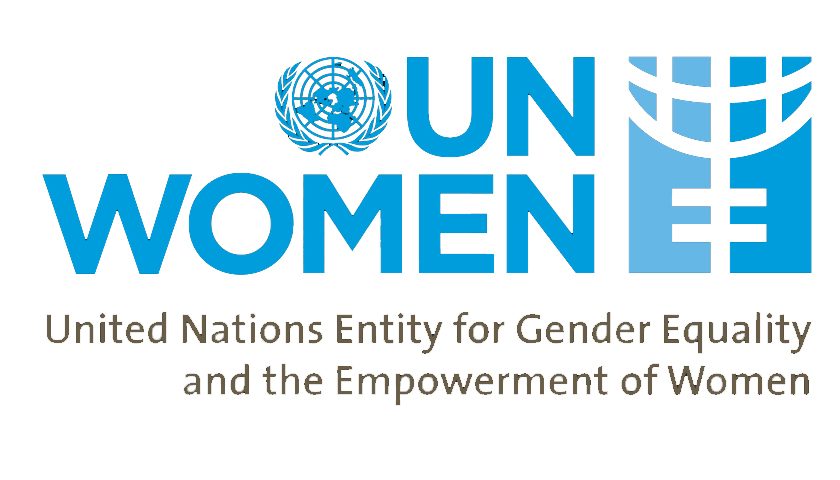A few days after having made landmark decisions demonstrating that gender equality is a reality at the olympic games, the International Olympic Committee (IOC) has taken a leadership role in the UN Women Sports for Generation Equality initiative, which aims to advance gender equality and the empowerment of women and girls in and through sport. The initiative was launched today by UN Women in partnership with the IOC.
The sports movement is invited to join the Initiative to accelerate progress on a set of common principles and aligned objectives that will harness the power of sport in making gender equality a reality within and through sport.
“Sport is one of the most powerful platforms for promoting gender equality and empowering women and girls,” said IOC President Thomas Bach. “At the Olympic Games Tokyo 2020 this summer, we will have reached gender balance, with 48.8 per cent women competing. We will also have full gender representation across all 206 teams and the IOC Refugee Olympic Team competing. Additionally, the IOC has changed the rules to allow one male and one female athlete to jointly carry their flag during the Opening Ceremony and encourages all National Olympic Committees (NOCs) to make use of this opportunity”, Bach stressed. “The newly launched UN Women Sports for Generation Equality Initiative shows the important role sport can play to highlight gender equality,” he added.
Joining the Sports for Generation Equality Initiative means joining a powerful multi-stakeholder coalition – consisting of governments, United Nations organisations, sport for development and peace organisations, civil society, sports federations, event organisers, leagues, teams, brands, marketers, media and sport influencers, etc.
“I thank President Bach and the IOC for leading by example and using the global influence of the Olympic Movement to inspire and mobilise others. As the IOC joins UN Women on the Generation Equality journey, together we send a powerful call to action to the world of sport to unite with us to make the promise of Beijing resonate even louder for this generation, and all those that follow,” said Phumzile Mlambo-Ngcuka, the Executive-Director of UN Women.
The Sports for Generation Equality Initiative will allow the sports movement to multiply the impact for gender equality and women’s and girls’ empowerment by learning from one another and accelerating efforts to:
- Promote women’s leadership and gender equality in governance models;
- Prevent and respond to gender-based violence;
- Undertake to close the gap in investment in women’s sport and promote equal economic opportunities for women and girls;
- Promote women’s sport’s equal participation and bias-free representation in the media; and
- Provide equal opportunities for girls in sport, physical activity and physical education.
As part of its leadership role, the IOC will support the signatories in understanding and implementing the guiding principles of the Initiative.
The Sports for Generation Equality Initiative is born from the global Generation Equality movement driven by UN Women. It is an invitation to bring in new partners and generations to embrace and revitalise the historic Beijing Platform for Action, and to make gender equality a lived reality. Agreed 25 years ago during the Fourth World Conference on Women, the Beijing Platform for Action is a guideline to remove the systematic barriers that hold women and girls back and still today remains the most ambitious international agenda for achieving gender equality in all spheres of society, including sport.
Over the last 25 years, the IOC has been advocating for the participation of women at all levels, encouraging its stakeholders –NOCs and International Federations (IFs) – to enhance the presence of women in sport.
The number of women competing at the Games has significantly increased – from 34 per cent at Atlanta 1996 to an expected new record of 48.8 per cent at Tokyo 2020 and a commitment to reach full gender equality for the Olympic Games Paris 2024. In October 2018, the Youth Olympic Games (YOG) Buenos Aires 2018 were the first fully gender-balanced Olympic event ever.
One of the biggest drivers of this positive evolution has been the IOC’s commitment to creating more opportunities for female athletes by expanding the Olympic programme to include more women’s events. In Tokyo, four IFs will move to gender-balanced events for the first time (canoeing, rowing, shooting and weightlifting). At discipline level, gender balance will be achieved in BMX racing, mountain biking and freestyle wrestling. In terms of athlete quotas, six IFs will move to gender balance for the first time (canoeing, judo, rowing, sailing, shooting and weightlifting).
Recognising that having gender-balanced Olympic Games is not enough, the IOC has also acted to encourage the whole Olympic Movement to advance gender equality on and off the field of play; and in March 2018 it launched its Gender Equality Review Project. The Gender Equality Review Project aims to strengthen gender equality across the entire Olympic Movement through action-oriented recommendations addressing five key themes: Sport, Portrayal, Funding, Governance and Human Resources. It is a tangible outcome of Olympic Agenda 2020, the strategic roadmap for the Olympic Movement.

